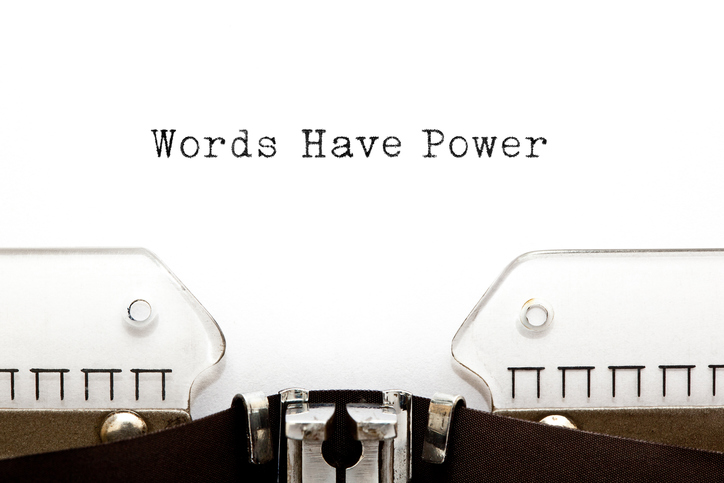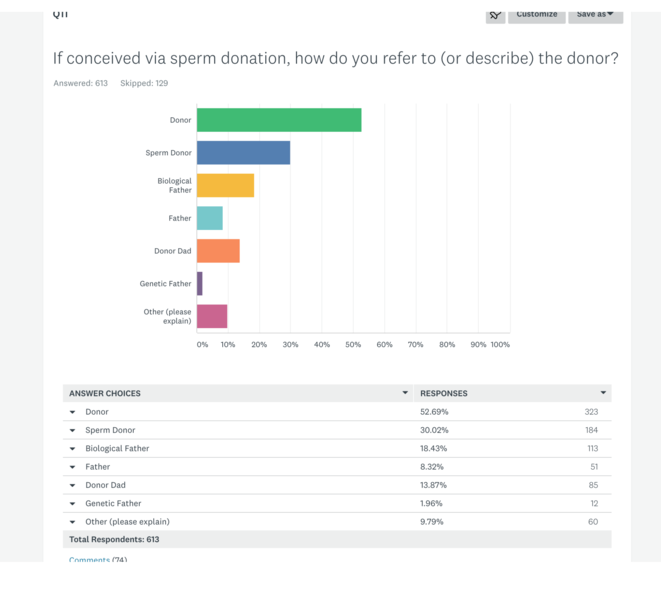My speaking experience last week at the ASRM's annual meeting was bizarre. The panel discussion was called "Open-Identity Sperm Donation: What Are the Children Saying?" Despite my early insistence that the panel actually invite donor-conceived people (DCP), no DCP were invited.* My fellow panelists seemed perturbed at my suggestion/reasoning and told me that DCP might be a part of a future talk, but not at this one that actually asks "what are the children saying".
Speaker #1, the owner of Seattle Sperm Bank talked about his sperm bank. He never mentioned identity release/open donation or anything about how it's working for donor-conceived people (DCP).
Speaker #2 an egg clinic director, presented information about an informal survey she took of her own egg clinic's parents. Again, nothing about open donation or DCP.
Speaker #3, a geneticist, talked about genetic testing. Again, nothing about open donation or DCP.
I then gave my presentation called The Ambiguity of Open Gamete Donation, citing why, in a significant number of instances, identity release/open donation is not working for DCP, and then questioned the ethics of "open" donation: deliberately keeping a donor child from their close genetic relatives, ancestry, and medical information for 18 years.
Given the title of the talk, it was bizarre that none of the "experts" wanted to talk about open donation and donor-conceived people. I am guessing that was because the other 3 panelists had limited understanding, contact, or experience with actual DCP. This has been my life's work for more than 2 decades, I have co-authored 26 papers in peer-reviewed journals, have talked with thousands of DCP and their families, have facilitated contact between more than 22,000 DCP and their close genetic relatives, and raised a donor child. So while I am not donor-conceived, I am very aware of their experiences and feelings. I had my white paper printed into booklets to hand out. While all vendors were handing out their goods in the exhibition hall, and books and merchandise were passed around a roundtable discussion I attended earlier that day, Sean Tipton of the ASRM publically reprimanded me for distributing my white paper called The Ambiguity of Open Gamete Donation, which has 33 pages of important qualitative (the voices of DCP, parents, and donors), and quantitative data (stats from research studies) to back-up my talk.
Speaker #1, the owner of Seattle Sperm Bank talked about his sperm bank. He never mentioned identity release/open donation or anything about how it's working for donor-conceived people (DCP).
Speaker #2 an egg clinic director, presented information about an informal survey she took of her own egg clinic's parents. Again, nothing about open donation or DCP.
Speaker #3, a geneticist, talked about genetic testing. Again, nothing about open donation or DCP.
I then gave my presentation called The Ambiguity of Open Gamete Donation, citing why, in a significant number of instances, identity release/open donation is not working for DCP, and then questioned the ethics of "open" donation: deliberately keeping a donor child from their close genetic relatives, ancestry, and medical information for 18 years.
Given the title of the talk, it was bizarre that none of the "experts" wanted to talk about open donation and donor-conceived people. I am guessing that was because the other 3 panelists had limited understanding, contact, or experience with actual DCP. This has been my life's work for more than 2 decades, I have co-authored 26 papers in peer-reviewed journals, have talked with thousands of DCP and their families, have facilitated contact between more than 22,000 DCP and their close genetic relatives, and raised a donor child. So while I am not donor-conceived, I am very aware of their experiences and feelings. I had my white paper printed into booklets to hand out. While all vendors were handing out their goods in the exhibition hall, and books and merchandise were passed around a roundtable discussion I attended earlier that day, Sean Tipton of the ASRM publically reprimanded me for distributing my white paper called The Ambiguity of Open Gamete Donation, which has 33 pages of important qualitative (the voices of DCP, parents, and donors), and quantitative data (stats from research studies) to back-up my talk.
The exhibition hall was filled with many sperm and egg vendors: the cryobanks and egg/embryo clinics/agencies, but there was no mention of the people they were all so focused on creating (except as babies) and the genetic connection between those people and the gamete sellers (the donors).
And great resistance to talking about or acknowledging them at all.
Comments from Donor-Conceived People:
If the title of the session is "Open-Identity Sperm Donation: What Are the Children Saying?", then why isn't there an actual DCP person on the panel? Instead of, for example, a sperm bank director who has financial incentive to keep donors anonymous? Why not DCP people who have experiences with the failings and successes of open donation? Shouldn't the children themselves answer the question about how they're doing?
I am perplexed. Why are 3 out of 4 of the panelists giving perspectives other than an offspring's perspective? Isn't this panel supposed to be looking into how the children feel and think about open or anonymous donation? The title should be: Open-Identity Sperm Donation: What are the sperm banks, genetic counselors, and parents saying?
I am frankly slack-jawed in amazement, disappointment, and disbelief. So far still to go sadly.
The CONTINUED lack of input from donor-conceived people is enough to give me conniption fits! Thank you, Wendy, for your attendance. I'm sure you'll give them plenty to think about.
From Parents:
It sounds to me like the people in the industry are presenting justification for continuing as they are… withholding information from dcp for 18 years. Thank you Wendy for standing up for our children’s rights time and time again.
Sadly, it’s too often that representative panels are hardly that. Like the male majority panels who speak to topics of women’s health.
*A few days before the conference the ASRM did buckle and allow DCP to send in a single video for participants to watch on the ASRM website.


 Browse by Clinic
Browse by Clinic
 Become a Member
Become a Member


